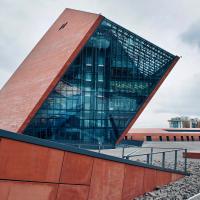Poland’s Museums Are Taking a Radically Conservative Turn—and the Fight Over Who Gets to Control Them Is Only Beginning

- 2020-02-12
- Artnet
At the beginning of the year, a divisive new director assumed the top job at one of Poland’s most internationally renowned institutions, the Ujazdowski Castle Center for Contemporary Art in Warsaw (CCA). His appointment at the state-run museum is at the center of a nationwide battle over who shapes Poland’s cultural institutions, with both sides claiming that they are being silenced. The stakes are high: the dispute has the potential to shape the art shown in Poland and the history taught to the public for decades to come.
When Piotr Bernatowicz’s selection as head of the state-run art center was first announced back in November 2019, the Polish cultural scene reacted strongly and quickly. Petitions and open letters were signed by leading Polish and international cultural figures, with one drawing almost 1,600 names. The Berlin-based Polish artist Agnieszka Polska published a grave op-ed in Frieze magazine, alerting international readers to the fact that “an ultra-conservative, homophobic-platforming curator is set to helm Poland’s leading artistic institution.”
His vision for the CCA, where he will remain for a seven-year term, is to give voice to views that he argues are unpopular in the art world, including “conservative artists, but also those who refuse adopting trendy ideological themes, are kept aside by the curators, and stay on the margins of art institutions.” It remains to be seen how exactly he will apply this agenda; his first program as director is due to be announced in March.
A descent into isolation and irrelevance is exactly what the Polish art world fears would become the CCA’s fate—a loss for a cutting-edge institution that, since the 1990s, has established itself as a reliable partner in an international network. This year, for example, shows already scheduled by the outgoing director include collaborations with the Kiasma Museum in Helsinki and the KW Institute in Berlin.